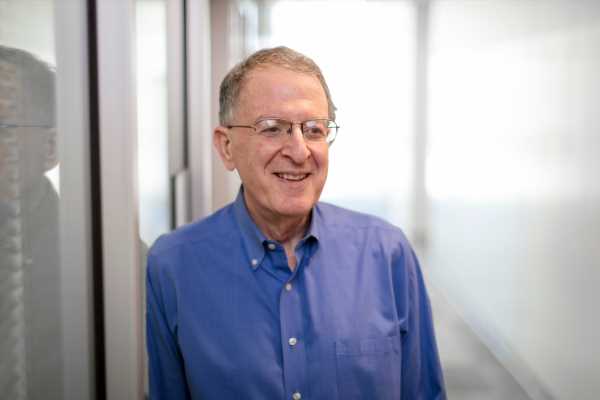Jeffrey I. Gordon, MD, the Dr. Robert J. Glaser Distinguished University Professor and director of the Edison Family Center for Genome Sciences & Systems Biology at Washington University School of Medicine in St. Louis, has been named this year’s recipient of the Dr. Paul Janssen Award for Biomedical Research. The honor recognizes Gordon’s groundbreaking studies of the role of the gut microbiome in human health and disease.
Given annually by Johnson & Johnson, the prize is awarded to “the most passionate and creative scientist or group of scientists in basic or clinical research, whose achievements have made or have strong potential to make a measurable impact on human health.” Multiple winners of this award have gone on to receive a Nobel Prize.
Gordon will receive the award on Feb. 9 during an event that includes a virtual symposium titled: “Therapeutic Potential of the Microbiome: Dr. Paul Janssen Award Symposium.”
The award honors the legacy of Dr. Paul Janssen, a prolific and transformative pharmaceutical researcher whose work led to the discovery and development of more than 80 medicines. Janssen’s discoveries have had a great impact on multiple areas of biomedicine including psychiatry, infectious diseases, gastroenterology and pain management. His professional legacy continues in the Janssen Pharmaceutical Companies of Johnson & Johnson.
The field of human microbiome research founded by Gordon has experienced explosive growth, whether judged by the number of publications or the number of microbiome programs created in universities, pharma, biotech companies and charitable foundations.
“The microbiome offers exciting new opportunities for identifying disease mechanisms, identifying therapeutic targets and discovering new therapeutic agents,” Gordon said. “Work in this area crosses traditional disciplinary boundaries and is advancing our understanding of how human physiology is shaped by our microbial communities and altering our understanding of microbial contributions to noncommunicable diseases.”
Gordon has a long-standing collaboration with Tahmeed Ahmed, MBBS, PhD, executive director of the International Centre for Diarrhoeal Disease Research in Bangladesh (icddr,b) and his group studying the role of the gut microbiome in childhood malnutrition. Together, their work has led to the development of new microbiome-directed therapies for combating childhood malnutrition — a long-standing multifaceted, pressing global health challenge worsened by climate change, the COVID-19 pandemic and geopolitical disruptions.
“The gut microbiome reflects, in so many ways, the varied ways we live, the gradients in wealth and poverty, and access to resources that currently exist, as well as the health disparities that we must acknowledge, address and surmount,” Gordon said. “Seeing the global health challenge of malnutrition embraced by members of our Washington University-icddr,b team in ways that illustrate their hopefulness, devotion, courage, creativity, self-sacrifice and sustained commitment to innovation is inspiring and gives me hope for the future of our children and grandchildren.”
Gordon has served as the mentor to 144 talented doctoral students and postdoctoral researchers who have worked in the lab since it was founded.
“The outstanding staff and students I have been privileged to work with have built a wonderful sense of community — a shared belief that discoveries and innovation are born from caring, supportive, respectful, trusting collaborative environments, where we can freely share ideas with one another and, at the same time, not be afraid to say ‘I don’t understand,’ so that we can learn together,” Gordon said.
Follow this link to register for the virtual Dr. Paul Janssen Award symposium and lecture: Therapeutic Promise of the Microbiome.
Source: Read Full Article
